Displaced South Sudanese women's wish: "A lasting peace so we can finally go home"
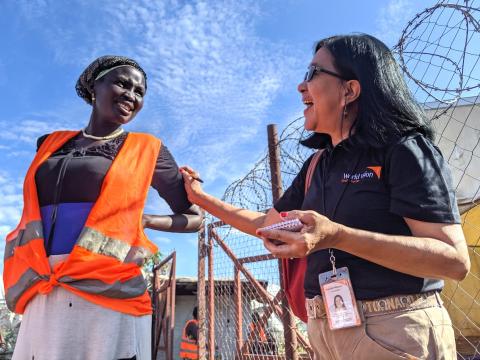
They were all huddled and engrossed, focused on organizing the food supply intended for the distribution. Their work for the day will serve at least 4,000 to 5,000 displaced people in Juba's Protection of Civilians' (POC) site. They chatted and laughed, unmindful of the heat. These women, I thought, were shining examples of positivity despite the difficult challenges around them.
One of the women carefully brought down the can of oil she carried on her head close to me. She hardly smiled but her demeanor was friendly, willing to share a piece of her life. "We have lived in PoC for six years now. We need peace soon. I want to go back to my village", says 27-year old Nyabouny, a mother of three.
She adds, "Life is not easy here. I miss my home and my village."
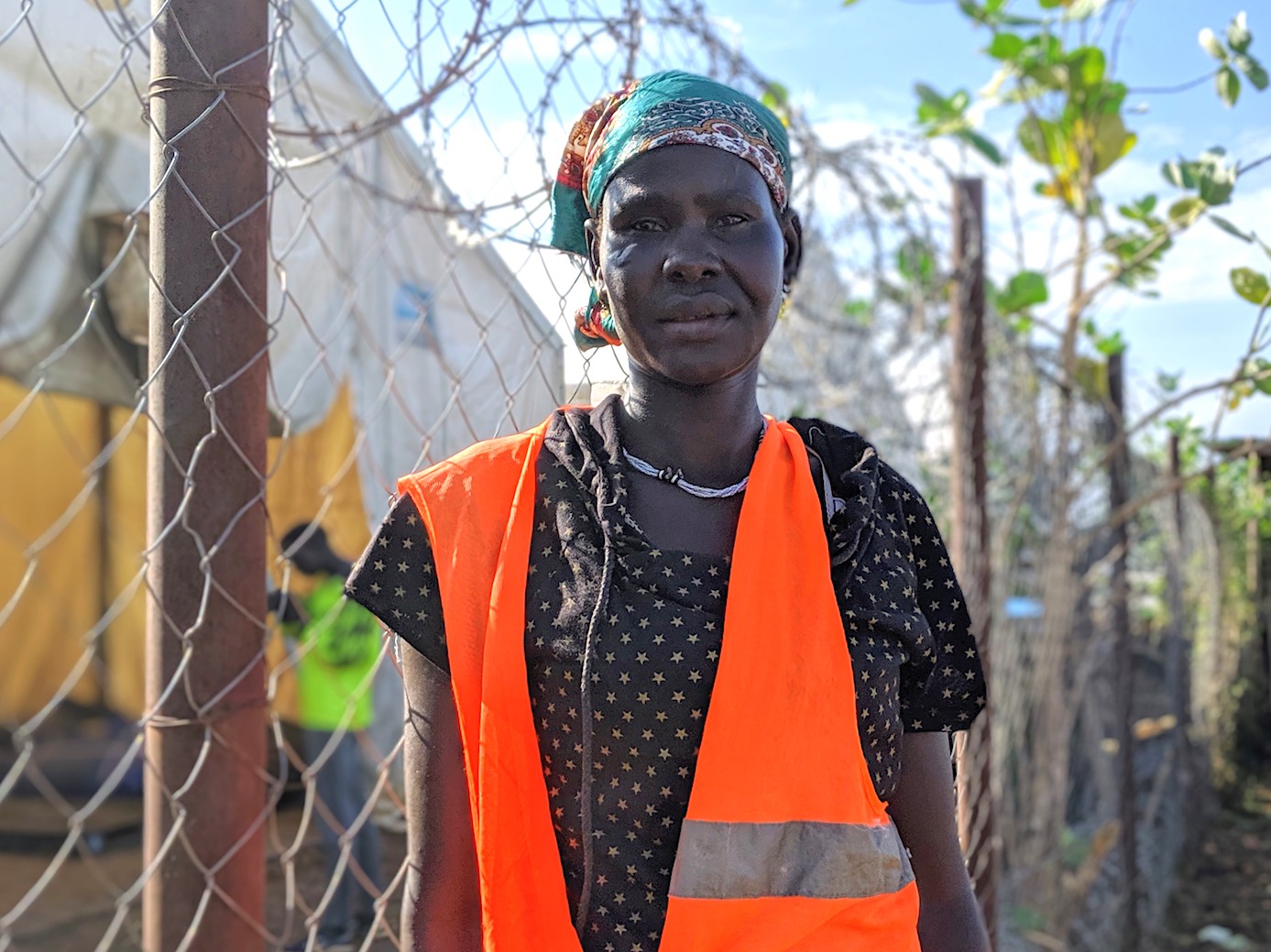
Finding home away from home
Two of her children were born in the POC and one was left behind with her mother in Nasser, a remote village in Greater Upper Nile State near the Ethiopian border. When intense fighting broke out in her village, she decided to flee and leave the only place she has known in her lifetime.
Nyabouny is one of the 31 women out of the 72 casual workers hired by World Vision to assist the Food Assistance team in the monthly food distribution. Scheduled at least 4-5 days every month, the women help prepare the food composed of oil, pulses, and cereals, salt and cash for milling.
"From Nasser, we walked for two days and rode the boat crossing the Nile River for five days. Then it took us another five days to reach Juba", she recalls her journey to find a safe place. Her son grew up without her. "I miss him and my mother", she says. Nyabouny hardly smiled, and when she did, the sadness in her eyes showed.
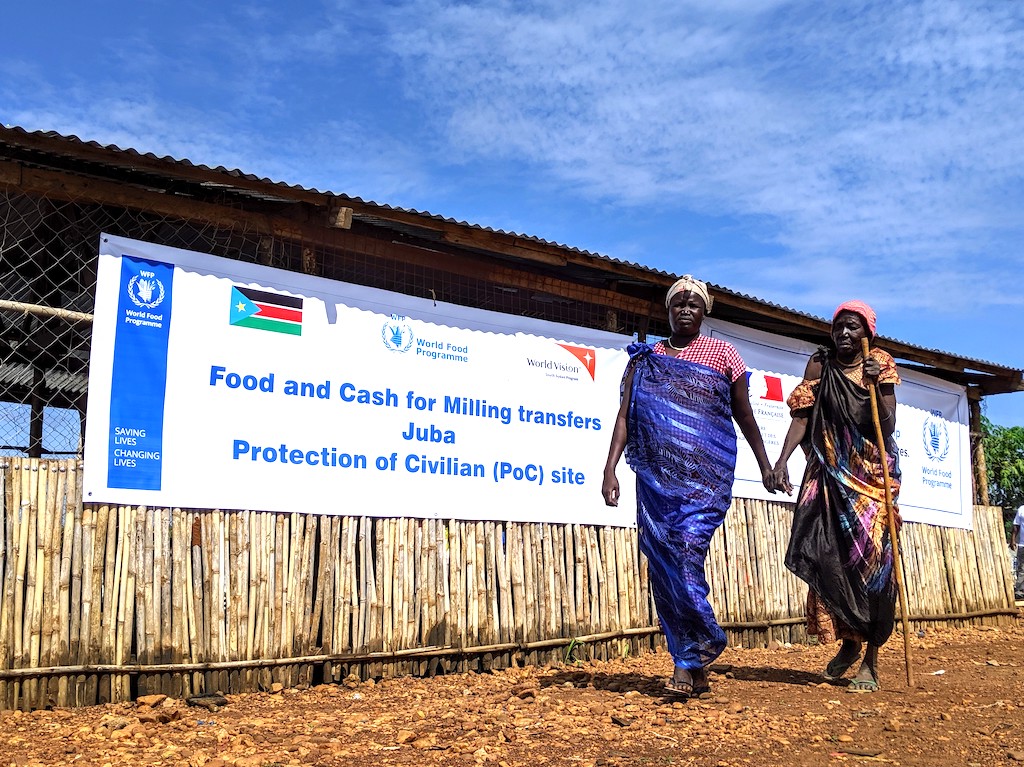
The only solution is lasting peace
Her only wish is to be reunited with her family. "All I wanted is for us to have a good life", she shares. She believes lasting peace can make it happen. This wish is also shared by Nyaynet, 22, also a mother of three who comes from a village in Bentiu town, formerly part of the Unity State.
According to World Vision's Food and Cash Assistance Project Manager Emilienne Cyuzuzo, "The women are more committed, hardworking and hardly complained of the work. They understand and plan for their household's needs very well. When they have an income, it is spent on their children's food, school materials, and other essentials."
Cyuzuzo said the lives women lead inside the POC is tough. "I cannot even imagine how they endure. At least 86 percent of the population in the camp are women. Men come and go but women stay put and take care of the family. Their movement is limited unlike when they are in their villages where they have farms and families", she says.
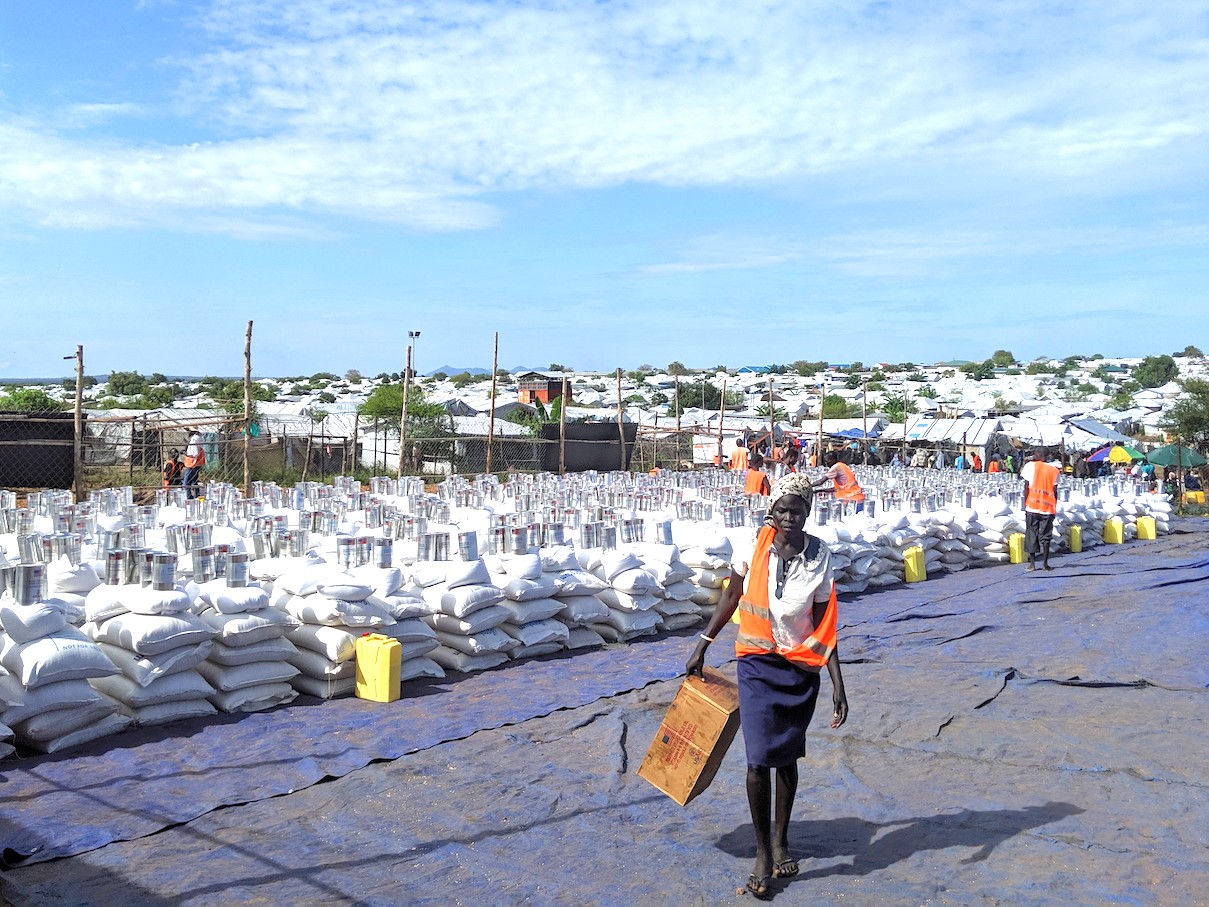
An endless battle for hunger
Despite the developments happening in the country, hunger is still a huge threat. "The most vulnerable ones are women and children", says Simanga Ndebele, World Vision's Food and Cash Assistance Programming Manager.
The latest report of the Integrated Food Security Phase Classification (IPC) shared that 39 percent (4.54 million), out of South Sudan's 12 million population, suffer from acute food insecurity.
Out of this 4.54 million battling acute hunger, 2.1 million are women and children. As acute malnutrition "increased significantly from 13 percent in 2018 to 16 percent in 2019" according to the World Food Programme report in September 2019, the burden for women is beyond anyone's comprehension.
"The humanitarian needs remain high amongst the displaced as they are largely confined inside the camps. Many of them have no means of livelihood or source of income. They are highly depended on aid", explains Gift Sibanda, World Vision's Juba Operations Manager.
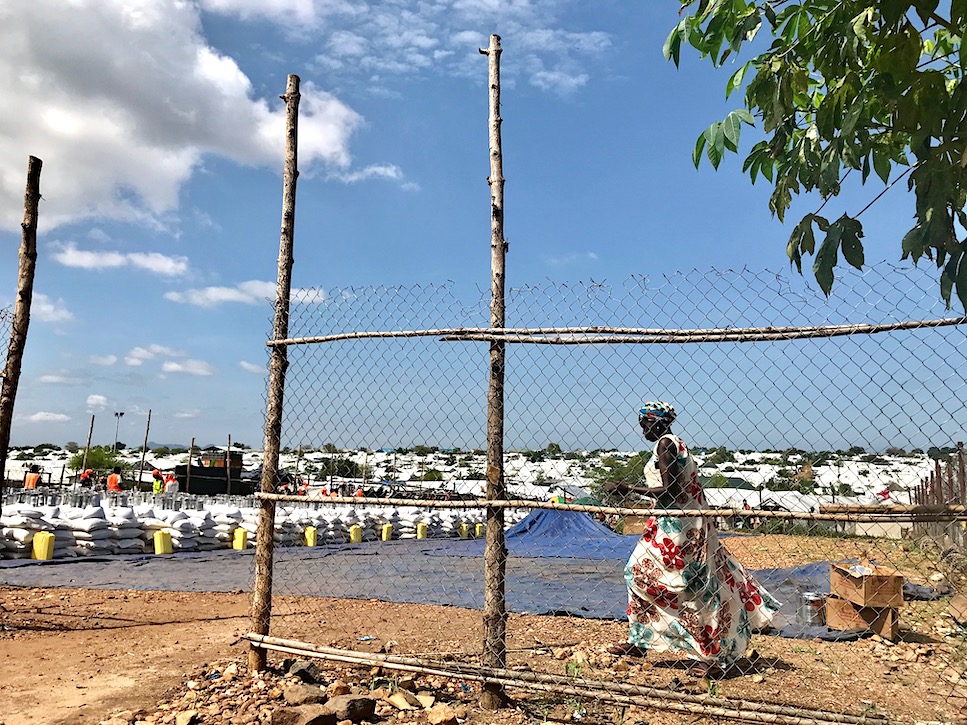
The world must help to make peace happen
The last malnutrition report on children under five years old living inside the POC is 16.2 percent, way higher than the global standard. "This is very alarming and we are doing our best to help address this along with other partners led by WFP", Cyuzuzo shares.
Nyabouny and Nyaynet have identified one solution to their plight: A lasting peace in South Sudan.
I hope the world is listening. Both women’s pleas were for peacemakers to work hard to achieve peace because it will impact millions of lives, especially South Sudan’s children.
In partnership with the World Food Programme, World Vision provides monthly food assistance to over 57,000 internally-displace people in three POC sites in South Sudan, two are in the country's capital Juba and one in Malakal, Greater Upper Nile State.
Blog by Cecil Laguardia, Communications Manager
Photos by Eugene Combo/World Vision